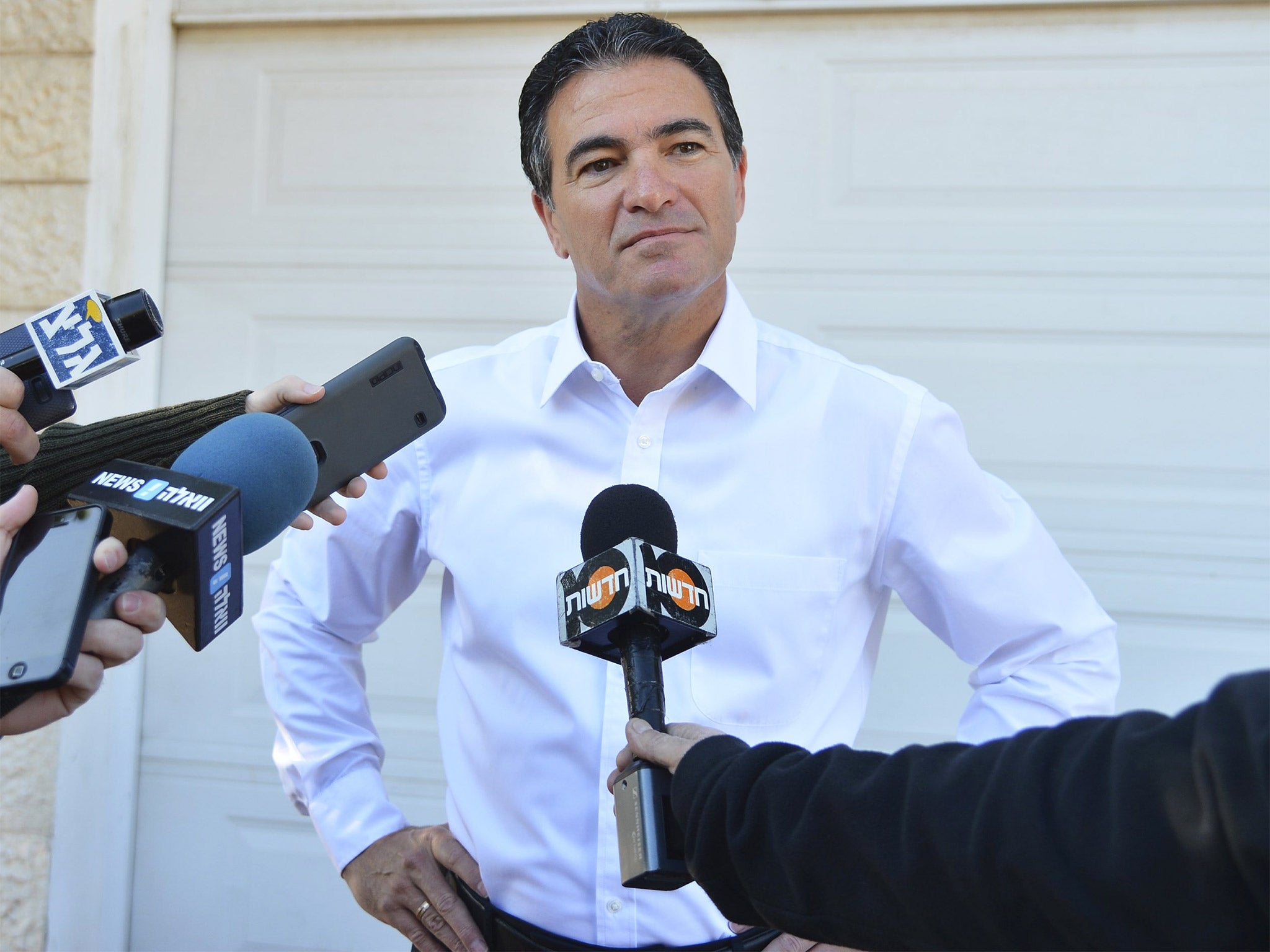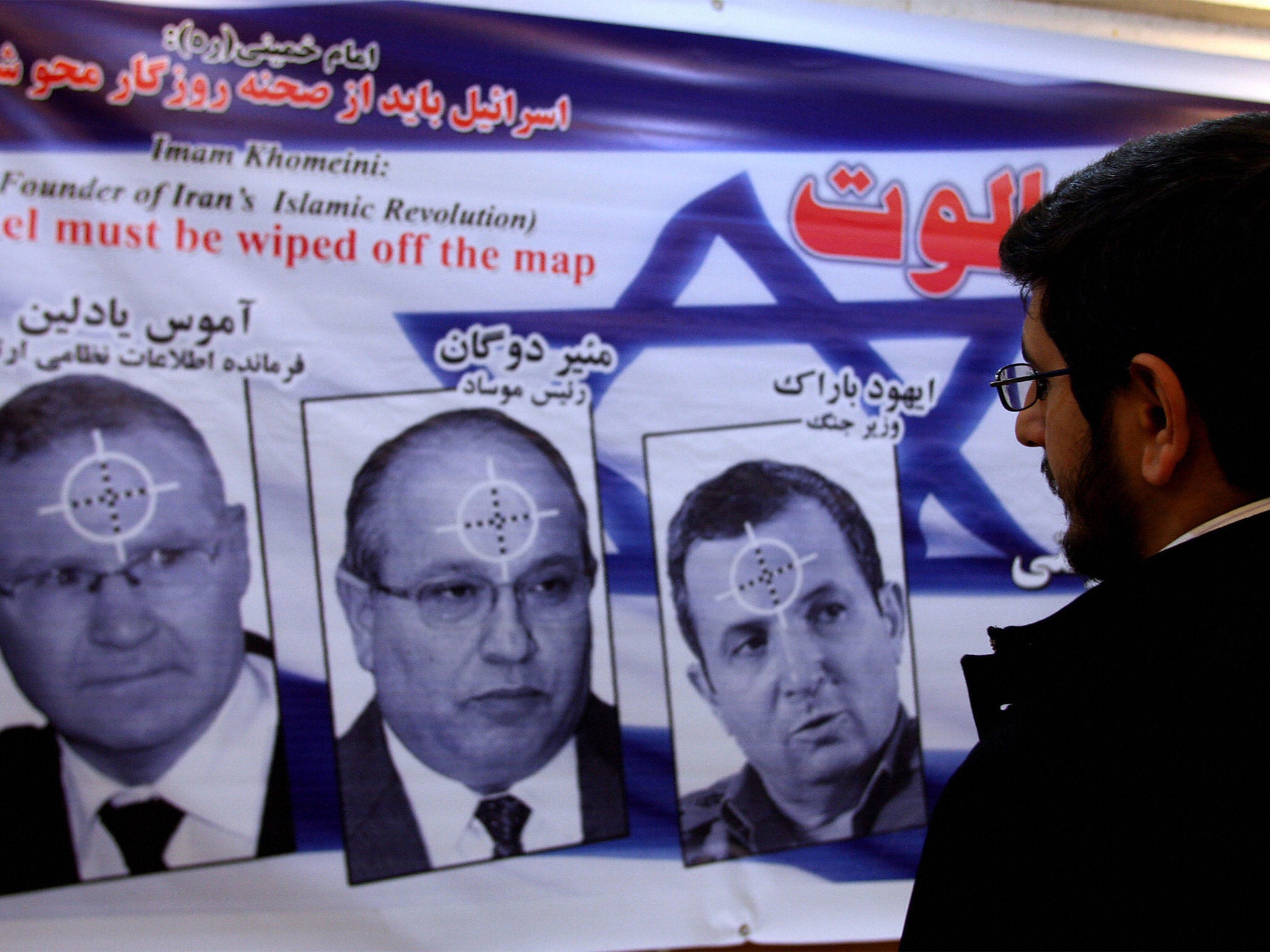Yossi Cohen: The Israeli spymaster straight out of Le Carré and Ian Fleming takes charge of Mossad
National security adviser takes top post after being credited with attempts to thwart Iran’s nuclear programme

Your support helps us to tell the story
From reproductive rights to climate change to Big Tech, The Independent is on the ground when the story is developing. Whether it's investigating the financials of Elon Musk's pro-Trump PAC or producing our latest documentary, 'The A Word', which shines a light on the American women fighting for reproductive rights, we know how important it is to parse out the facts from the messaging.
At such a critical moment in US history, we need reporters on the ground. Your donation allows us to keep sending journalists to speak to both sides of the story.
The Independent is trusted by Americans across the entire political spectrum. And unlike many other quality news outlets, we choose not to lock Americans out of our reporting and analysis with paywalls. We believe quality journalism should be available to everyone, paid for by those who can afford it.
Your support makes all the difference.A spymaster with a reputation for activating and managing secret agents all over the world, including reported efforts to sabotage Iran’s nuclear programme, has been appointed by Prime Minister Benjamin Netanyahu as the new head of the Mossad espionage agency.
The Israeli press likened the incoming top spy, Yossi Cohen, 54, who has served in the agency for more than three decades and has been the Prime Minister’s national security adviser for the past two years, to a character from Le Carré or Ian Fleming.
Nicknamed “the Model” for his dapper appearance and neatly combed hairstyle, Mr Cohen speaks English, French and Arabic but perhaps more importantly succeeded in forging common language with the Israeli Prime Minister, a trait that occasionally eluded his predecessor as Mossad chief, Tamir Pardo.
The latter was famously reported last year to have told a closed meeting that the conflict with the Palestinians posed a greater threat to Israel than did Iran, a statement that according to Haaretz newspaper angered Mr Netanyahu. Mr Cohen’s appointment was praised by Mr Pardo, while press profiles described him as able to inspire the confidence of his charges.
But he will need more than that to succeed. He takes up his new post next month at a particularly challenging time that will demand his oversight of the Israeli efforts to scrutinise Iran’s compliance with last summer’s nuclear deal.
He will be the key figure in efforts to thwart what Israel sees as Tehran’s efforts to establish hegemony in the region. Yedioth Ahronoth newspaper wrote that if it was true that Mossad had in recent years assassinated Iranian scientists, intercepted raw materials for Iran’s nuclear programme and planted viruses in its computers are true – as widely reported abroad – then that was in large measure due to Mr Cohen and the agents he recruited.
Mr Cohen, whose father was a fighter in the right-wing Irgun underground group before Israel’s establishment, headed the largest wing of the Mossad, Tsomet, which manages agents worldwide. He later rose to become deputy head of the agency. While he is credited with being a brilliant tactician, critics say he has yet to prove himself as a strategic thinker about regional affairs.
“Cohen is intelligent, charming and was a legendary activator of agents but his horizons are narrow and his daring is limited,” wrote Ben Caspit, a commentator for Maariv newspaper. “That is exactly what Netanyahu wanted as chief: someone who will know how to identify the will of his masters, who will have a sensitive barometer to measure the spirit of the commander, who won’t be too adventurous.”
As national security adviser, Mr Cohen was credited with keeping a line open to the Obama administration even as US-Israeli relations underwent a turbulent period with Mr Netanyahu’s speech last March to Congress aimed at torpedoing US efforts to reach a nuclear deal with Iran.
In announcing Mr Cohen’s appointment, Mr Netanyahu said he expects Mossad to “continue to assist me, as Prime Minister, to develop diplomatic links around the world, including with Arab and Islamic states”.

In other words, Mr Netanyahu is counting on Mr Cohen to oversee Israeli efforts to encourage moderate Sunni Muslim states to forge ties with Israel based on a common perception of Iran and Isis as threats. “This kind of secret diplomacy is traditionally the domain of the Mossad,” said Yossi Alpher, the former director of the Jaffee Centre for Strategic Studies and himself a former Mossad agent.
“Any Sunni Arab country that like Israel perceives the twin dangers of militant Sunni and militant Shia Islam is a candidate for these kind of relations if Israel can succeed in developing them.”
He added: “This is clearly one of Netanyahu’s strategic goals in the region and it involves an attempt to bypass the traditional demand of moderate Sunni Arab countries for Israel to make progress on the Palestinian issue first.”
Meanwhile, the escalation of Israeli-Palestinian tensions continued to take a toll. Clashes broke out following the funeral in Dehaisheh refugee camp of a 19-year-old youth killed during an army raid. An army spokeswoman said troops faced pipe bombs and Molotov cocktails and “fired warning shots into the air ”.
Join our commenting forum
Join thought-provoking conversations, follow other Independent readers and see their replies
Comments